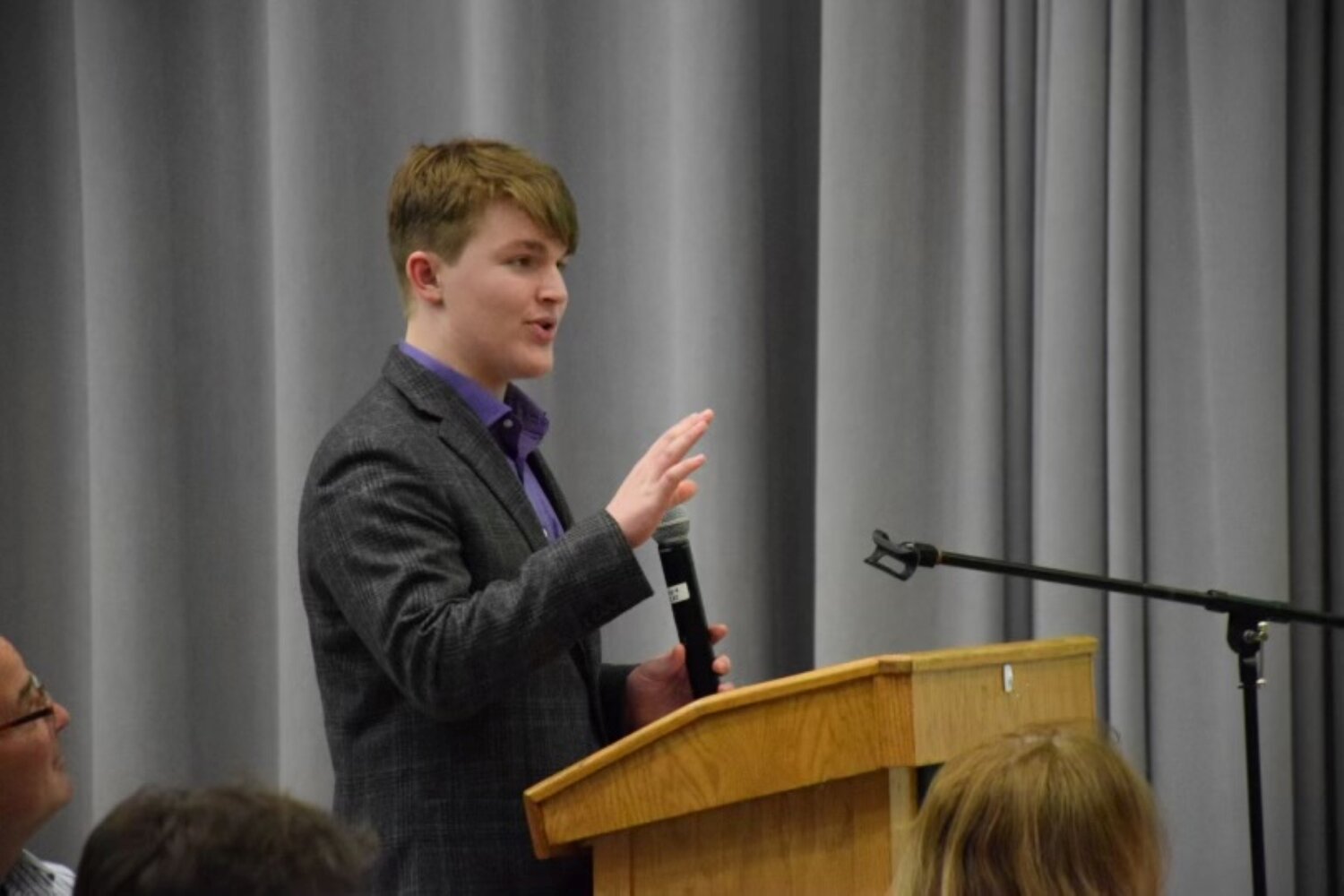Science Research Program celebrated at Locust Valley
The Locust Valley Science Research Program, led by dedicated educators and fueled by the curiosity of young minds, is empowering students at Locust Valley High School to explore complex scientific inquiries, paving the way for future innovators and problem solvers. The project, which includes students from 6th to 12th grade, also recently received a grant worth $2,500 to help fund students’ projects.
During the March 20 Board of Education meeting, the Science Research Project, overseen by Louis De Rose, the district’s science research coordinator, was one of several standout programs celebrated by the board. Kirsten Turnow, the district’s superintendent, said she is thrilled she was at the remarkable work accomplished by the students and their mentors.
De Rose, along with students like ninth-grader Christopher “CJ” McKenzie and eleventh-grader Sam Zarou, discussed the grant and presented their research. The grant comes from the Citizen Campaign Fund for The Environment, a nonprofit environmental organization, which chose the program as one of the select recipients from among high schools across Long Island.
“Our research program is much more than just an honors elective,” De Rose emphasized. “Our job is really to cultivate their curiosity. We do research, and the students get the chance to overcome challenges that are very unique to the research process.”
The students’ projects, which had to advance the restoration and protection of the Long Island Sound to qualify, exemplified the depth of inquiry and the innovative spirit fostered within the program. McKenzie’s project on the potential of rotor sails to reduce fossil fuel emissions and Zarou’s investigation into environmental noise pollution exemplify the caliber of research undertaken by students.
In their presentations McKenzie and Zarou both pointed out some of the challenges facing the sound, and explained in scientific detail how their respective projects could address some of the issues. They also discussed how excited they were that their research could have a real-world impact.
“It is my hope that with research such as this more companies will produce commercial vessels that will begin to include rotor sails in their production to reduce overall emissions,” McKenzie said.
The Science Research Project extends beyond typical classroom activities, offering students the opportunity to delve into topics of their choosing, ranging from environmental sustainability to cutting-edge technology. Under the guidance of dedicated mentors like De Rose, students develop essential research skills, critical thinking abilities, and the confidence to articulate their findings with poise and clarity.
Turnow spoke of the importance of cultivating a generation of thinkers capable of navigating the complexities of the modern world. By engaging in hands-on research, students learn to grapple with real-world challenges and contribute meaningfully to scientific discourse, she said.
The program, she added, not only equips students with technical knowledge, but also fosters essential skills such as communication, collaboration, and adaptability — qualities vital for success in any field.
”A lot of kids, they don’t just want to read something. They want to dig deep,” Turnow said. “I think this research is real, and it means something to these kids.”
The program’s impact extends beyond the classroom, as evidenced by the recent grant awarded to support research focused on the restoration and preservation of the Sound — a testament to the initiative’s commitment to environmental stewardship and community engagement.
As Turnow emphasized, the Science Research Project is about more than just academic achievement; it’s about nurturing a generation of “empathetic, globally-minded individuals equipped to tackle the challenges of tomorrow.” By instilling in students a love of learning and a commitment to inquiry, the program is laying the foundation for a brighter future — one driven by curiosity, innovation, and a passion for discovery.






